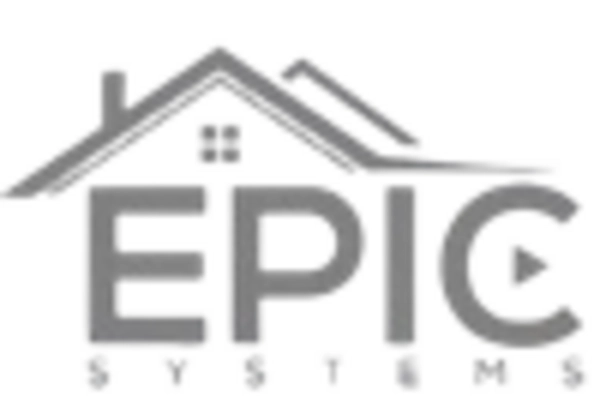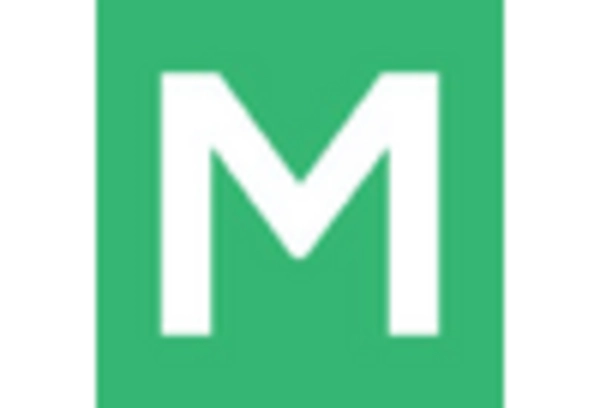Integration of Advanced Analytics
The integration of advanced analytics into hospital information systems is becoming increasingly prevalent. Hospitals are recognizing the value of data-driven decision-making, which can lead to improved patient outcomes and operational efficiencies. By leveraging analytics, healthcare providers can identify trends, optimize treatment protocols, and enhance resource management. The hospital information-system market is projected to grow as more institutions adopt these technologies. It is estimated that hospitals utilizing advanced analytics can reduce operational costs by up to 15%, highlighting the potential financial benefits of integrating such systems.
Regulatory Compliance and Standardization
Regulatory compliance remains a critical driver in the hospital information-system market. Hospitals are required to adhere to various federal and state regulations, including those related to patient privacy and data security. The Health Insurance Portability and Accountability Act (HIPAA) mandates strict guidelines for handling patient information, compelling hospitals to invest in robust information systems that ensure compliance. As non-compliance can result in hefty fines, the market is witnessing an increase in demand for systems that facilitate adherence to these regulations. This focus on compliance is likely to shape the development and implementation of hospital information systems in the coming years.
Growing Demand for Patient-Centric Solutions
The hospital information-system market is experiencing a notable shift towards patient-centric solutions. This trend is driven by the increasing expectation of patients for personalized care and improved engagement in their health management. Hospitals are investing in information systems that enhance patient experience, streamline communication, and provide access to health records. According to recent data, approximately 70% of patients express a preference for digital tools that facilitate interaction with healthcare providers. This growing demand is likely to propel the hospital information-system market, as providers seek to implement systems that not only meet regulatory requirements but also enhance patient satisfaction and outcomes.
Advancements in Health Information Technology
Technological advancements are significantly influencing the hospital information-system market. Innovations such as artificial intelligence, machine learning, and big data analytics are being integrated into hospital information systems to improve operational efficiency and decision-making processes. For instance, AI-driven analytics can help in predicting patient admissions and optimizing resource allocation. The market for health information technology is projected to reach $250 billion by 2025, indicating a robust growth trajectory. These advancements are likely to enhance the capabilities of hospital information systems, making them more efficient and effective in managing patient data and hospital operations.
Increased Investment in Cybersecurity Measures
As cyber threats continue to evolve, the hospital information-system market is witnessing a surge in investment in cybersecurity measures. Hospitals are increasingly aware of the vulnerabilities associated with digital health records and the potential repercussions of data breaches. Consequently, there is a growing emphasis on implementing robust cybersecurity protocols and technologies to protect sensitive patient information. The market for healthcare cybersecurity is expected to reach $125 billion by 2027, reflecting the urgency and importance of safeguarding data. This heightened focus on cybersecurity is likely to drive the development and enhancement of hospital information systems.
















